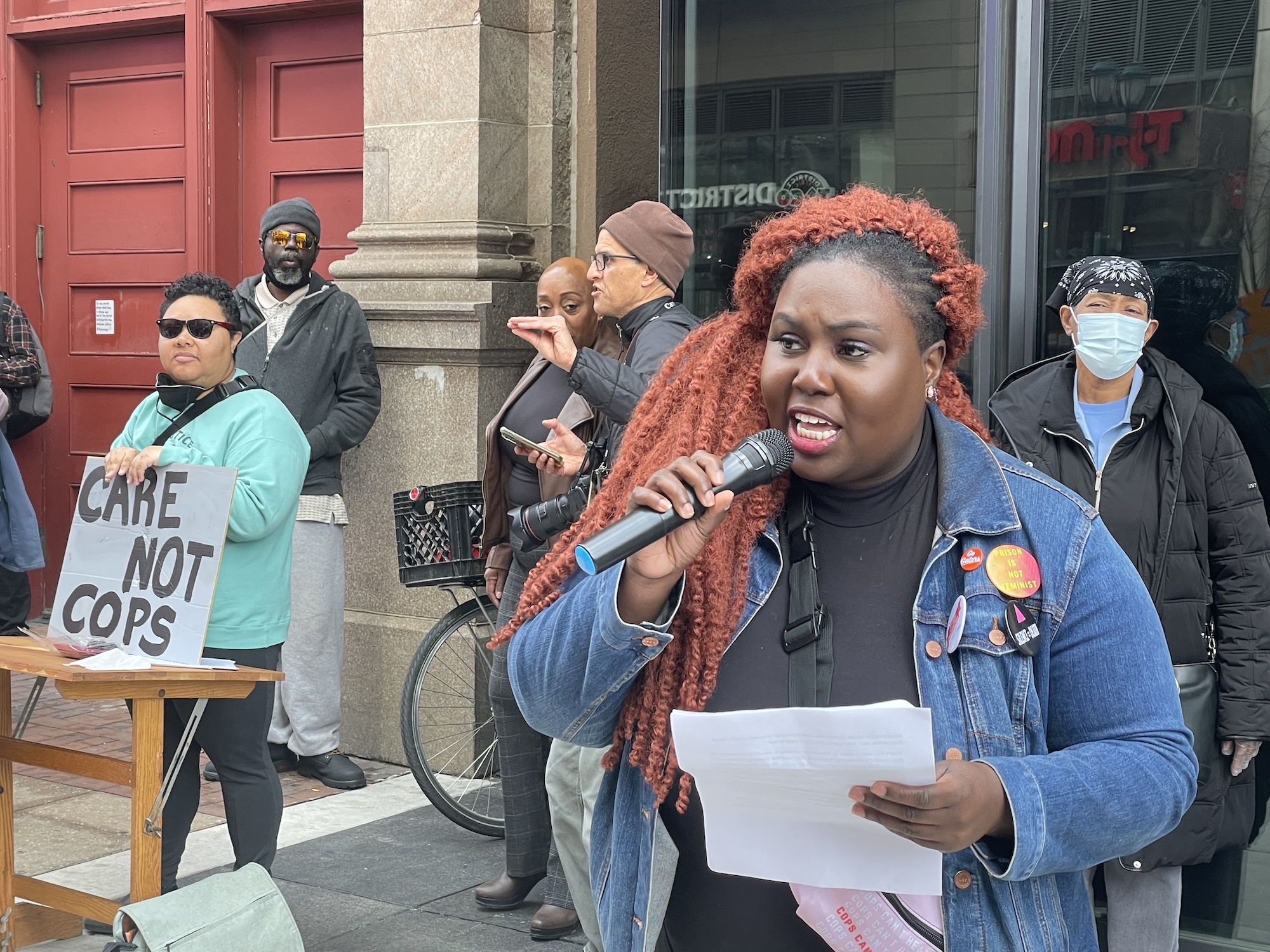
Elected officials and Philly orgs demand non-police responses to 911 calls
DBHIDS needs more funding for non-police mobile crisis teams.
On Tuesday, March 15, around 75 people gathered on the sidewalk at 11th and Market Streets to rally for non-police mobile crisis responses to mental health emergencies.
“We believe that when someone is having a mental health crisis they should receive care not cops,” said Tonya Bah of Free The Ballot who helped to emcee the rally.
The rally was organized by the Amistad Law Project and the Treatment Not Trauma Coalition. Participants rallied in front of the headquarters of the Behavioral Health and Intellectual disAbility Services (DBHIDS), and spirits were kept high with melodies from musician Karen Smith and the Snacktime Brass Band.
Yesterday with #TreatmentNotTrauma we called on Dr. Bowen of @DBHIDS to ask for more money in this years city budget so non-police mobile crisis response can be expanded citywide and be available 24/7.
— Amistad Law Project (@AmistadLaw) March 16, 2022
Read about the rally here: https://t.co/JVZXKYcgn3
After the tragic police murder of Walter Wallace Jr., Amistad Law Project and Treatment Not Trauma joined forces to mobilize around the issue of non-policy responses to mental health emergencies.
In the 2021 budget, the organizations were able to win a $7.2 million dollar allocation of funds to DBHIDS for a mobile crisis team expansion pilot program.
Wallace, a mentally ill Black man, was killed outside his home in West Philadelphia on Oct. 26, 2020, by police officers responding to a 911 call and hearing warnings from Wallace’s relatives that he was experiencing mental instability.
Footage from the incident showed Wallace holding a knife when the officers arrived and they repeatedly asked him to drop the weapon. When he refused, and moved towards one officer, officers shot several rounds and killed him.
A 2015 report by the Treatment Advocacy Center found that people with mental illness are 16 times more likely to be killed by law enforcement. This issue is compounded even more when race is factored in.
We agree with @AmistadLaw and the #treatmentnottrauma campaign! We need a full funding for mental health first responders — not just more money for police. pic.twitter.com/QJMWC76ZxM
— Tax The Rich PHL (@TaxTheRichPHL) March 15, 2022
“We can’t talk about this issue if we can’t talk about how mental health is racialized. Black and Brown people in mental health crises are dehumanized. We can’t have another life taken because we aren’t funding mental health while police budgets get bigger.” said State Representative Rick Krajewski.
RELATED CONTENT
While the department received a $7.2 million budget increase to fund additional mobile crisis teams, the expansion has not yet happened.
Earlier that day, several elected officials, along with over 25 organizations, including Juntos, VietLead, and Black Lives delivered an open letter to Dr. Jill Bowen, acting commissioner of DBHIDS, highlighting their demands.
“We know that non-police responders do a better job of handling mental health crises than do police or teams of police and mental health professionals, and is the preferred standard of care,” the officials and organizations wrote in the letter.
Last year, we won the first mobile crisis response units for our city, because mental health crises require & deserve expert, clinical care.
— Helen Gym (@HelenGymAtLarge) March 15, 2022
Our communities need investment & compassion — proud to stand with the Treatment Not Trauma Coalition in this fight for true public safety pic.twitter.com/8IafkEspBg
At minimum, the group is urging the agency to provide a 24/7 model, an emphasis of complete separation from the police, and dignified transportation to inpatient or outpatient care.
Amistad Law and Treatment Not Trauma were hopeful that by the next budget cycle, DBHIDS would be able to show that Philly was ready to join the ranks of similar successful programs around the country, and level up.
But it’s been discovered that Dr. Bowen has no intention of asking for more money in this year’s budget to expand the program.
“We demand that DBHIDS ask for money in this year's budget so that the non-police mobile crisis is fully expanded and covers the entire city 24/7. Cops can’t heal,” said Nikki Grant of Amistad Law.



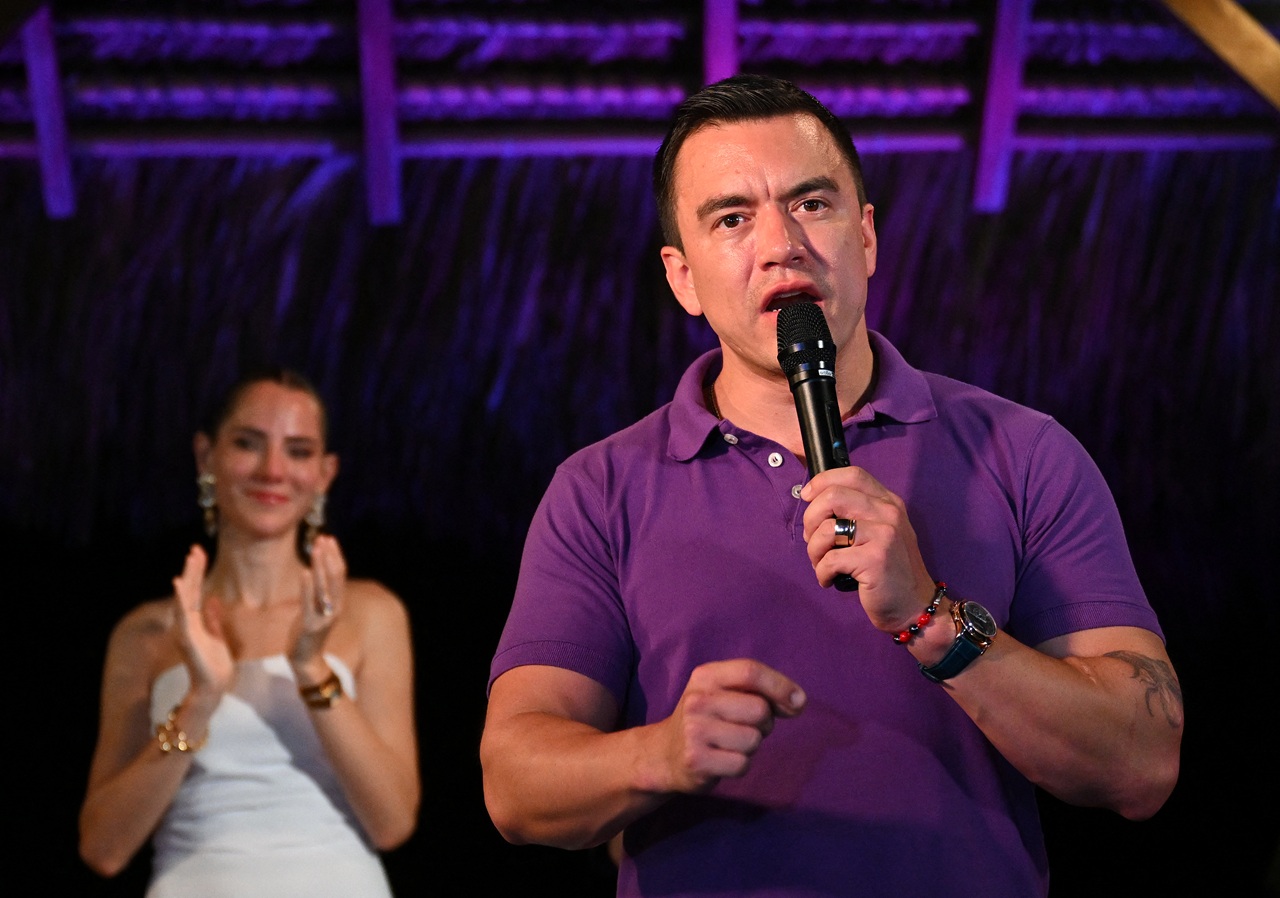
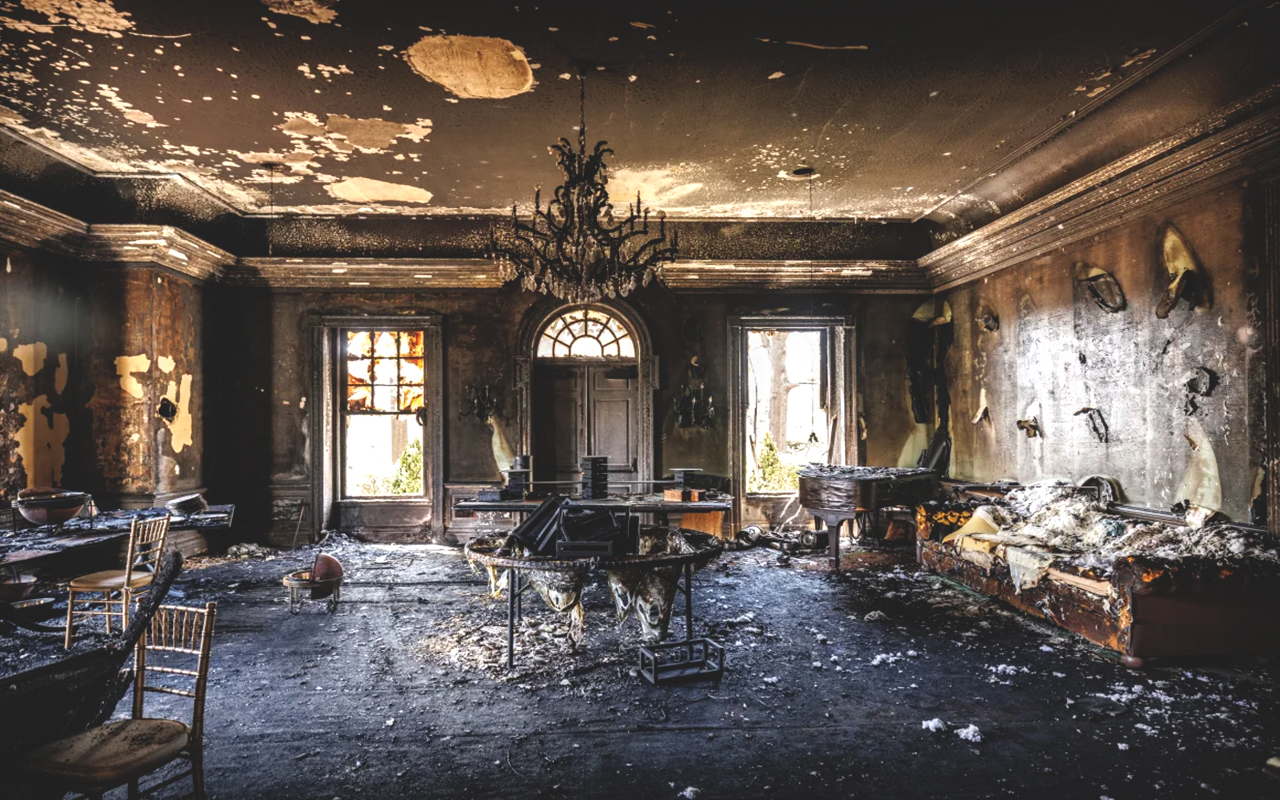
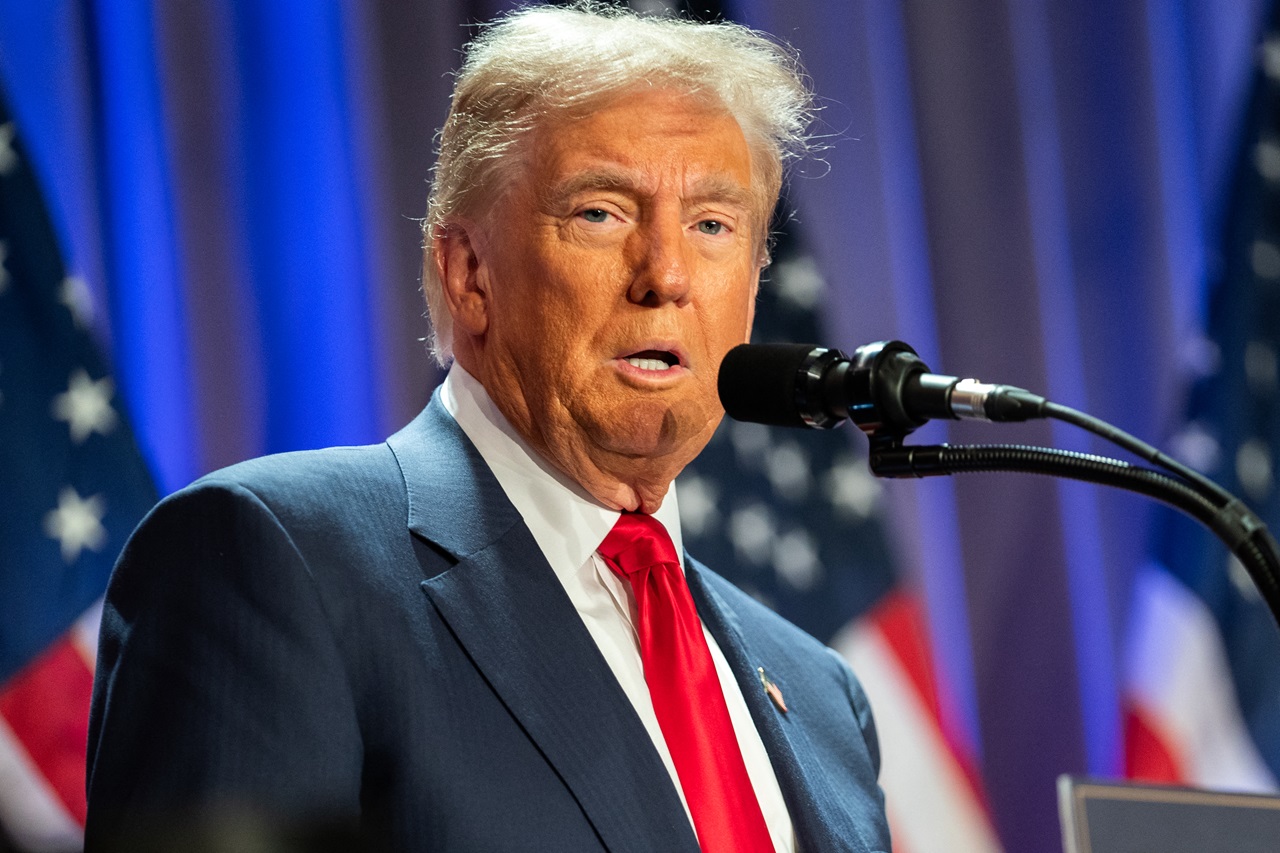
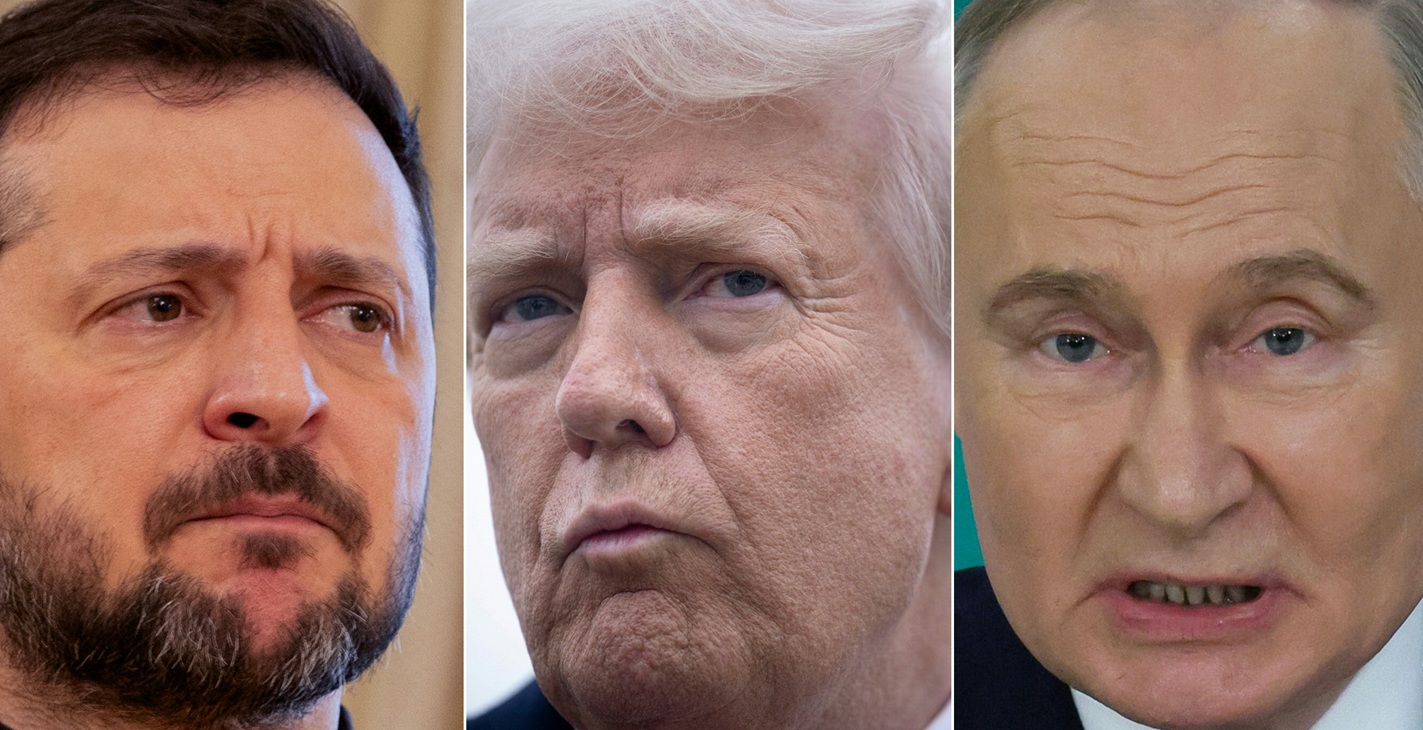

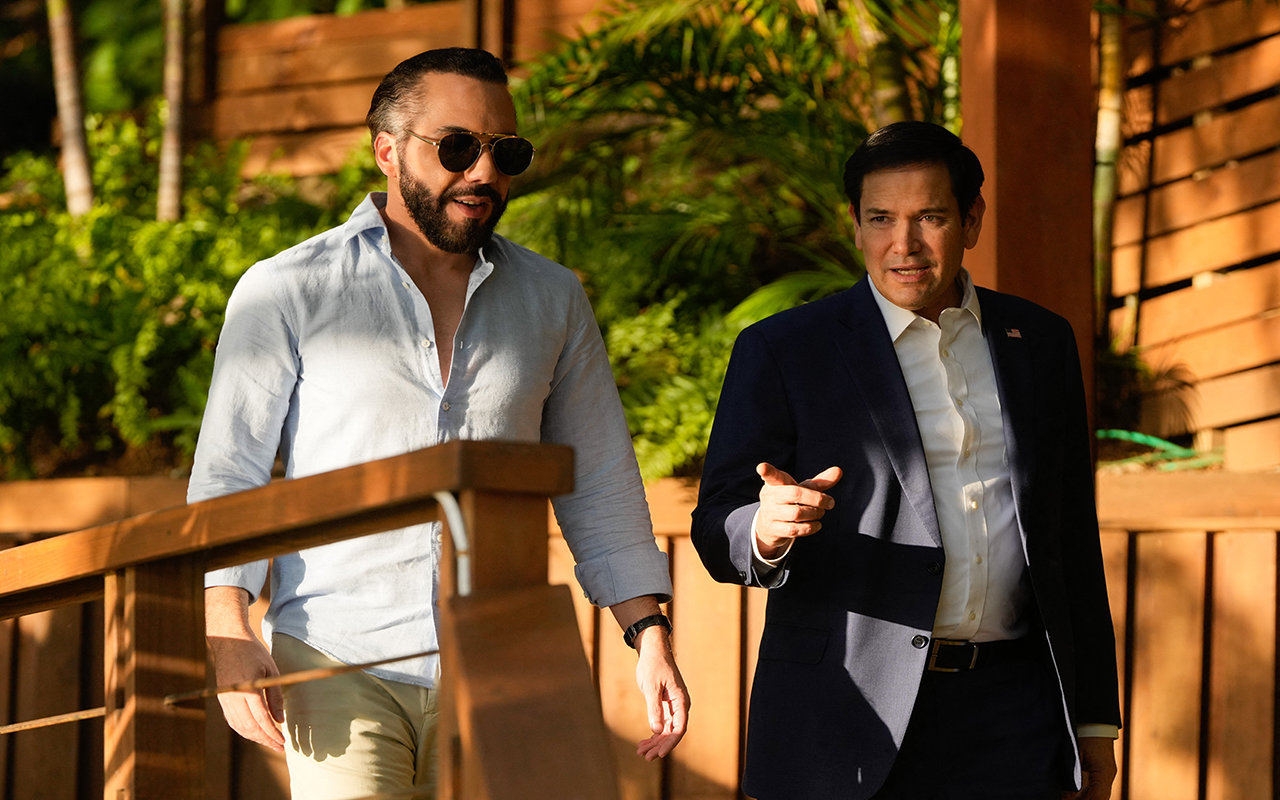


LEAVE A COMMENT: